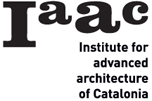Architecture tends to be considered as a three dimensional discipline. However, since the appearance of mass media, the presence of architecture and its compositional values in the two-dimensional press releases should not be ignored. For that reason, nowadays, is interesting to explore if and in which way editorials implement architectural tools and references to influence consumer’s behavior and subsequently the mechanisms of production and evolution of society. This analysis will be mainly focused on decoration magazines and especially on these which refer to the general public, narrowing the examples to two traced from Greece. Continuously, the definition of the notion of “lifestyle” according to the marketing theories will allow the contemplation on how specific ways of life can be connected to certain decorative styles and how can this finally be perceived from one’s social surroundings. It is important to note that the key point for this analysis is the idea of the “myth” as it was developed by Roland Barthes (Barthes 1991). Furthermore, it has to be noted that the indirect messages transmitted to a reader, which are homogenously integrated in the flow of content will be used as the base point of the analysis. According to Jean Baudrillard, in our days the way you choose to launch a product has the same importance as the product itself (Baudrillard 1987) so in this case how a message is transmitted (a situation which needs a transmitter and a receiver) as well as the connotations within it need to be explored. Finally, certain keys-readings, such as the theories of semiotics, the analysis of the bourgeoisie by the Frankfurt School, as well as the modern theories of marketing can be crucial for understanding this process and its consequences.
Barthes, Roland. 1991. Mythologies. Annette Lavers trans. New York: The Noonday Press-Farrar, Straus and Giroux.
Baudrillard, Jean. 1998. The Consumer Society: Myths and Structures. Chris Turner trans. Nottingham: Nottingham Trent University and Theory, Culture & Society.

